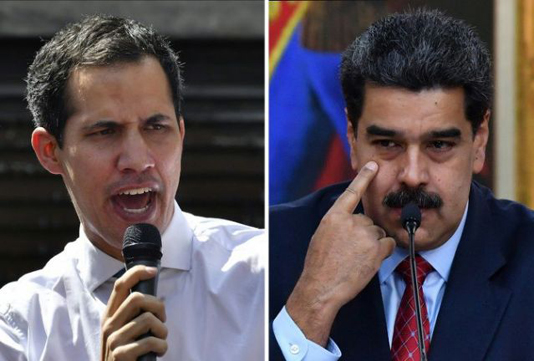CARACAS, Sept 1, 2020 (BSS/AFP) – Venezuelan President Nicolas Maduro on Monday pardoned more than 100 lawmakers and associates of opposition leader Juan Guaido “in the interests of promoting national reconciliation,” the government said.
Guaido’s assistant Roberto Marrero and lawmakers Gilber Caro and Renzo Prieto were among the names read out by Communications Minister Jorge Rodriguez live on state television.
The presidential decree “comes into force from its publication” after which the courts “must implement immediate measures to liberate the persons mentioned,” said Rodriguez.
Marrero was arrested in March 2019 and accused of being part of a “terrorist cell” planning attacks to destabilize the Maduro government.
Guido himself was not among those pardoned, though, despite several cases open against him.
Those on the list of 110 people included opposition lawmaker Freddy Guevara, who fled to the Chilean embassy in the capital Caracas in 2017 after leading anti-government protests that left 125 people dead.
The Supreme Court — which has been accused of pandering to the regime — ordered that he be denied the freedom to leave the country.
Also among the pardoned is Henry Ramos Allup, the head of the Democratic Action party which is the oldest in Venezuela.
In addition, the order includes people with outstanding judicial cases, including opposition lawmakers living in exile.
“Pardon or insult, Maduro is neither president, nor am I a criminal,” wrote Americo De Grazia, a lawmaker living in exile.
“If you (Maduro) want to contribute to peace in Venezuela, pardon the country from the usurpation of power, quit the occupation that has resulted in a tragedy inflicted on our people and maybe then we’ll have something to thank you for.”
The opposition considers Maduro a usurper over his 2018 re-election in a poll widely seen as fraudulent.
In January 2019, Guaido launched a challenge to Maduro’s authority by declaring himself acting president, quickly receiving the backing of more than 50 countries.
– Quest for ‘legitimacy’ –
The pardons announcement came a day after Maduro claimed to be supporting measures to bring “reconciliation” and “dialogue” to the deeply polarized South American country ahead of December legislative elections.
Guaido and leading opposition figures have already vowed to boycott that election over a lack of transparency after the Supreme Court appointed election officials — a role that should have been conducted by the opposition-controlled legislature.
The “number one aim” of the pardons is to “legitimize” the December elections, analyst Felix Seijas from pollsters Delphos, told AFP.
Maduro “is giving in to one of the opposition’s long-standing demands in negotiations,” Seijas added.
For Rafael Alvarez Loscher, from the JURISCORP consultancy, Maduro is trying to “build bridges” with fundamental powers such as the European Union.
The idea is to give an air of “legitimacy” to the legislative elections so that he can take control of the National Assembly.
“Maduro needs to take decisions regarding the external debt, he needs capital, he needs loans, debt restructuring, Venezuela needs money,” said Alvarez Loscher.
But that’s not possible with Venezuela subject to international sanctions, led primarily by the United States.
Maduro needs legitimacy to be able to push for sanctions relief.
Venezuela is sitting on the world’s largest proven oil reserves but under Maduro’s watch, the country has descended into crisis.
Poverty has soared, inflation is the highest in the world, the currency has become practically worthless, and oil production is down to its lowest level in 77 years, which experts blame on mismanagement and corruption.
There may be yet another plan behind the move.
“Maybe now, we will see the empowerment of some political leaders,” said Seijas
The advantage for Maduro could be to “promote the participation of competing” political powers within the opposition.



